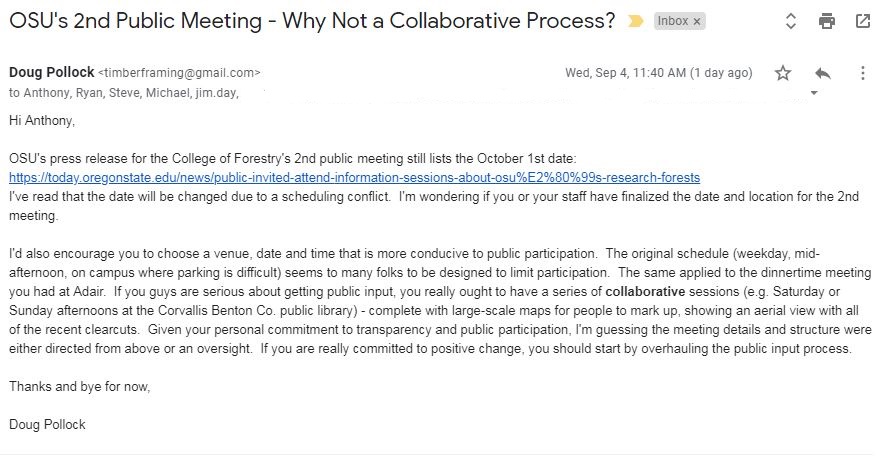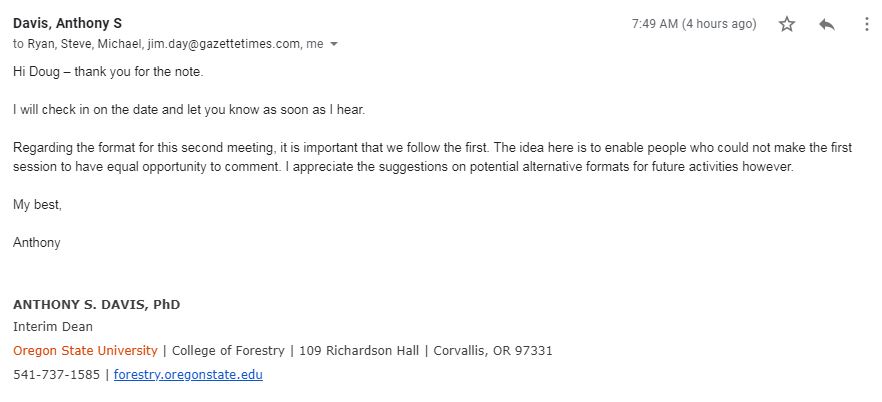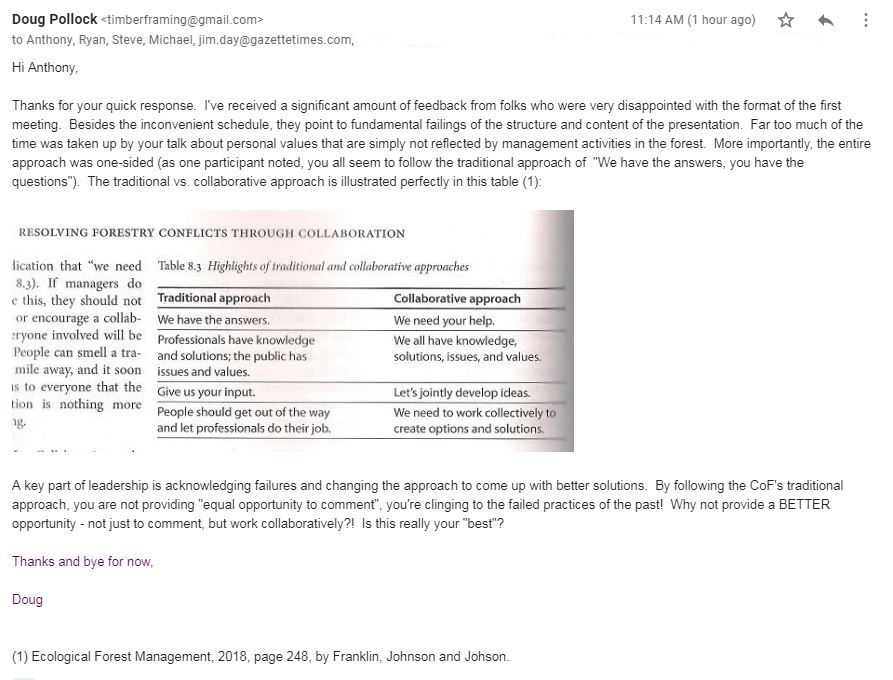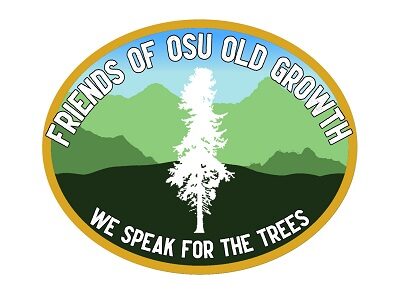One of the things that is largely invisible to the thousands of people who visit our website, get our updates, and support our cause is the considerable amount of advocacy and organizing that goes on behind the scenes. Since discovering OSU’s cutting of Old Growth in late may, I’ve invested hundreds of hours of my life in this cause (all of it unpaid). I’ve worked 10 to 16 hours a day for weeks at a time sending emails, making phone calls, meeting with people, and giving tours of the clearcut and remaining Old Growth. Our network of supporters has grown to include legislators, current and former College of Forestry staff, environmental groups, people involved with the Elliott State Research Forest, and over 1000 citizens who’ve signed our petition. We have created a movement aimed not only at preserving OSU’s remaining old forests, but also transforming how the College of Forestry manages this public resource.
For those who are interested, I thought it might be helpful to share one recent example of advocacy – aimed at changing the College of Forestry’s process for gathering public input to become a collaborative approach. After OSU’s recent public meeting (reported in the Corvallis Gazette Times: https://www.gazettetimes.com/news/local/osu-takes-heat-for-forest-practices/article_baeabf74-ef1b-521b-ab9c-feae19dac71c.html ) I emailed the Dean to express concerns about the format and ask about the date of the 2nd meeting. Here’s my original email to the Dean:

Dean Davis responded in a timely manner – surprising, as many of my emails remain unanswered after weeks or months:

The Dean’s justification for not changing the traditional meeting format (“to enable people who could not make the first session to have equal opportunity to comment”) seemed to have missed my point – prompting my reply:

While these kinds of exchanges often seem like an exercise in futility, I believe they can be highly effective. By holding public employees accountable with articulate, thoughtful replies, one sends a message: this is important, we have a strong case, we’re not giving up or going away! Emails are a sword that cuts to the bone of powerful, bureaucratic institutions. They allow one to have conversations with dozens or hundreds of people at a time (choosing whom to make public and keep private). They also provide a permanent record of comments and commitments (often to great regret of the senders). Email is the “great equalizer” in the fight to change institutions like the College of Forestry. I’d encourage you to hone yours to a razor’s edge – and use it effectively. Together, we can create positive change!
